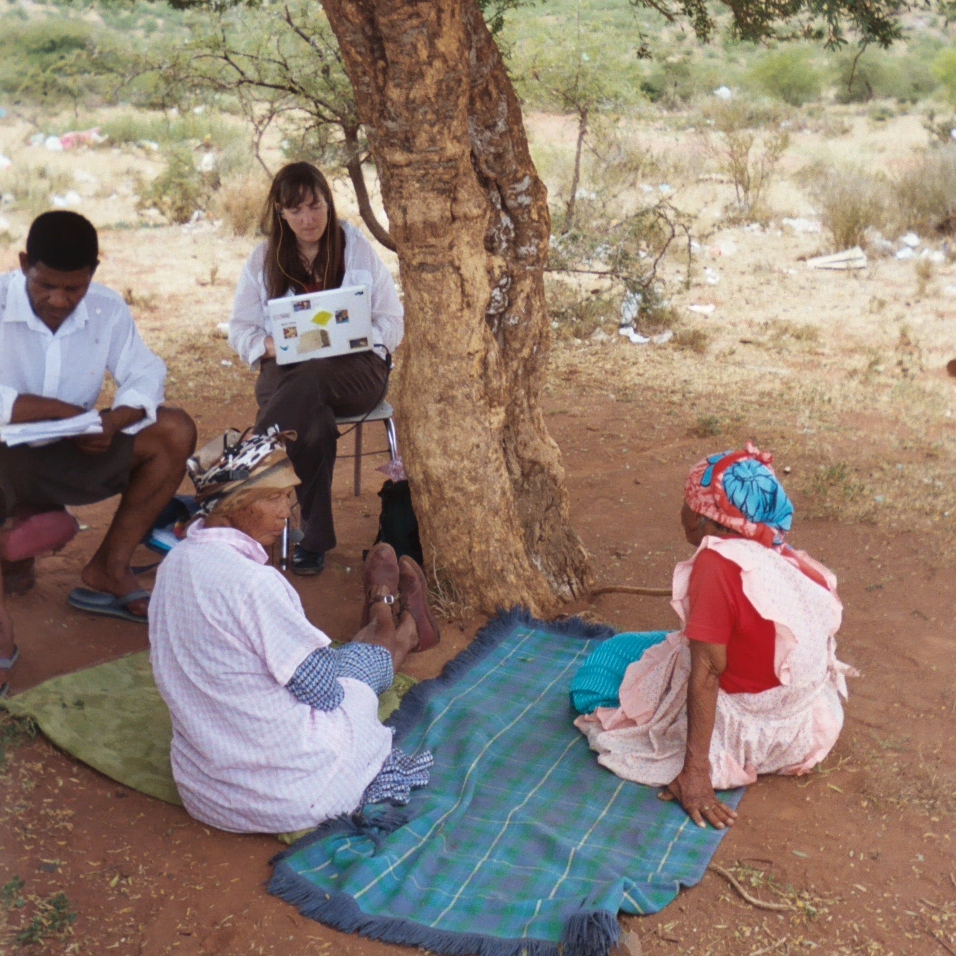Linguist Bonny Sands speaks in clicks. The adjunct faculty member is an expert on click languages, and supports language revitalization efforts through documentation.
Sands began studying click languages in 1988 as a graduate student at UCLA. When fellow linguists have questions about click languages, she gets an email.
But the entire business of language revitalization itself, is endangered, in part because of the difficulty in finding sufficient long-term funding to study the languages: Sands described it as a crisis.
“There are about 2,000 languages in Africa and of those, everybody agrees that about 300 are seriously endangered,” Sands said. “But I argue that the actual number of languages that are in trouble is closer to 600.”
Sands’ work will be published in the book, Africa’s Endangered Languages, Documentary and Theoretical Approaches, which is in production will be released next year by Oxford University Press.
Revitalizing languages is an important step toward preserving the heritage in countries including Namibia, Botswana, South Africa and others.
One language Sands has researched extensively is N|uu, which sounds like the word ‘new’ spoken with a click. It is spoken in South Africa, where the language has diminished over time, replaced by Afrikaans.
While much of Sands’ work entails documenting languages, N|uu has been especially challenging, because the language itself is also spelled N||ng and N||ŋ!ke. Compared to other alphabets, N|uu has among the most consonants and vowels, before the clicks are even considered.
In South Africa, the native N|uu speakers are dying from old age, creating an impetus to teach the language in schools, a movement that has developed during Sands’ time working on the language. Despite the difficulty in spelling N|uu words, school-aged children are learning some of the sounds and words.
“I don’t want the fact that people can’t write the language or the fact that books are not written in N|uu to be a barrier and hurt the revitalization effort,” Sands said. “People should be speaking N|uu with their grandmothers, instead of worry about spelling,” she said, referring to a literacy bias favoring the written word.
As Sands continues her work documenting the click languages, she also advocates for their preservation.
In Nigeria, for instance, there are 103 languages that some people say are not in trouble but they have fewer than 5,000 speakers,” Sands said. “To me, those are languages at risk.” Sands describes the crisis in greater detail in her forthcoming book.
This Gazing at the Stars video is available for viewing in the Hugh Brody archive of UCT Libraries Digital Collection, with a detailed looks at the N|uu language revitalization effort.



